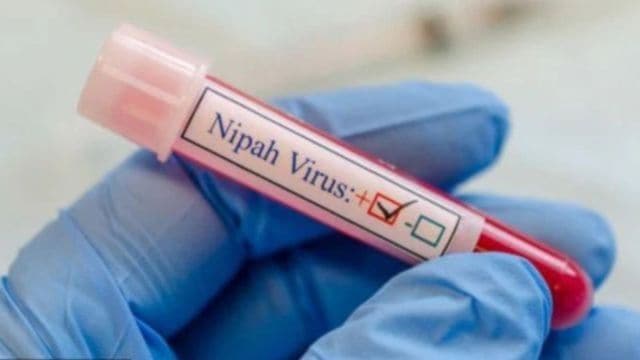Kerala alert after Nipah virus cases: Here’s why it happens every monsoon, know about signs and symptoms
Doctor explains dos and don’ts if you are living in an affected area
 Nipah virus outbreaks have recurred in Kerala primarily because of the ecology of the region. (File Photo)
Nipah virus outbreaks have recurred in Kerala primarily because of the ecology of the region. (File Photo)The Kerala Health Department has stepped up vigil against the Nipah virus after two positive cases of the deadly zoonotic disease were detected in two districts.
One of the affected is undergoing treatment while another has died. State Health Minister Veena George has said the alert has been sounded in Kozhikode, Malappuram and Palakkad, where 345 people are in the contact list of the two cases, which were confirmed after samples tested in NIV-Pune.
Why does Nipah spiral every year? According to Dr Rakesh Gupta, senior consultant, internal medicine, Indraprastha Apollo Hospitals, “With global warming, changes in wildlife behaviour and human lifestyle factors, such viruses may continue to pose a risk, making constant monitoring essential.”
What do we need to remain careful about?
With Nipah cases resurfacing in Kerala, it is important to stay vigilant. Avoid eating fruits that look partially eaten or pecked by birds and bats, as the virus is often linked to contamination from fruit bats. Wash fruits thoroughly before eating. Maintain good hand hygiene and avoid visiting hospitals unless absolutely necessary, especially in areas with reported cases.
Stay alert for symptoms like fever, headache, drowsiness, confusion or respiratory issues — and seek immediate medical care if these occur. Also, limit contact with patients’ bodily fluids. Follow government advisories and avoid spreading rumours, which can cause panic.
Health workers and caregivers should use protective gear. If there are deaths in the family or neighbourhood from unknown fever, inform health authorities for proper containment. Vigilance and early detection play a huge role in preventing the spread of Nipah.
Why is Nipah re-emerging in Kerala?
Nipah virus outbreaks have recurred in Kerala primarily because of the ecology of the region. Its climate and landscape support dense fruit tree cover and a large population of fruit bats (the natural hosts of the virus). Changing patterns in land use, human encroachment into bat habitats, and the habit of consuming fresh fruits or toddy can increase the chance of bat-human contact.
With the monsoon, there is more fruiting, attracting bats closer to human dwellings. Increased moisture can also spoil fruits faster, making them more attractive to bats. Additionally, water-logging and changes in local ecology during the monsoon might bring humans, bats and domestic animals into closer contact, raising the chance of spillover.
Additionally, Kerala’s strong disease surveillance system helps identify cases quickly, which is why outbreaks are promptly reported.
How does the virus spread?
Nipah virus primarily spreads from animals (especially fruit bats) to humans through contaminated food, such as fruits or raw date palm sap tainted with bat saliva or urine. It can also spread through direct contact with infected animals like pigs, though this is less common in India.
Once in humans, the virus can spread from person to person via close contact, especially through bodily fluids, saliva, urine, or respiratory droplets. Caregivers and health workers are at higher risk if proper precautions aren’t taken. Hospital-acquired infections have been documented in previous Kerala outbreaks. Unlike COVID-19, Nipah does not spread through casual airborne transmission over long distances; it requires close or direct contact. Hence, avoiding exposure to possibly contaminated food, maintaining personal hygiene, wearing masks around patients, and isolating suspected cases are key measures to stop its spread.
- 01
- 02
- 03
- 04
- 05































